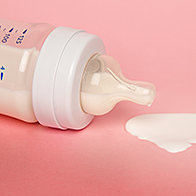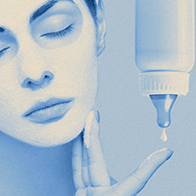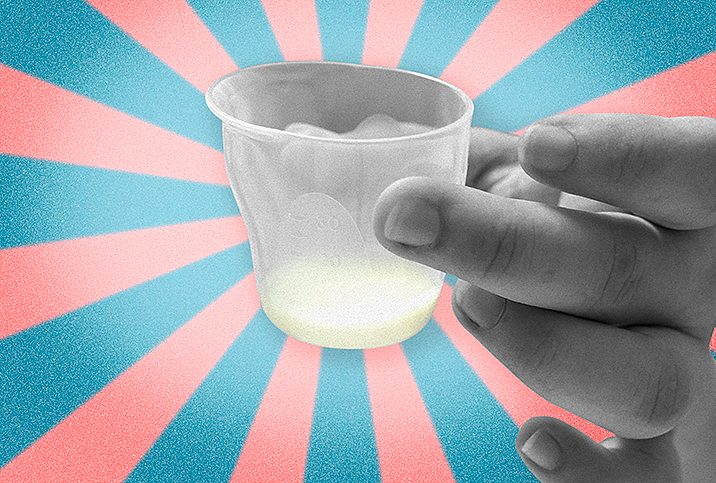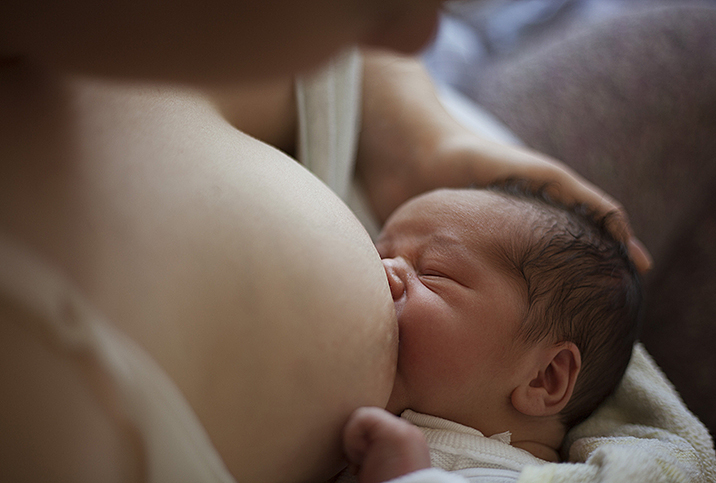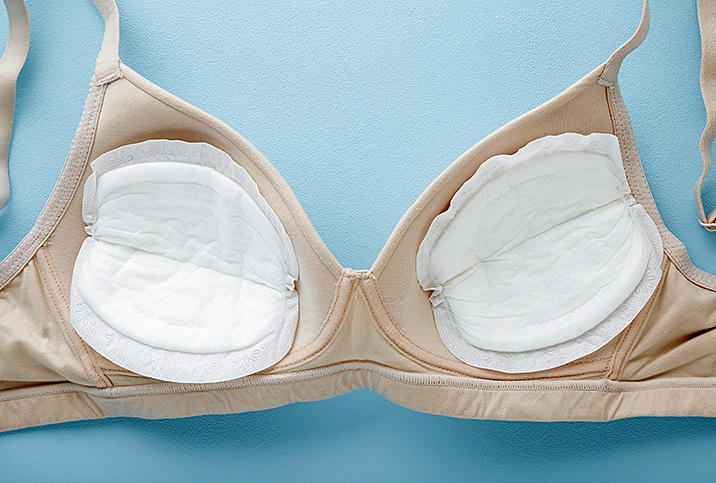Breast Milk Banks Struggle to Meet Demand
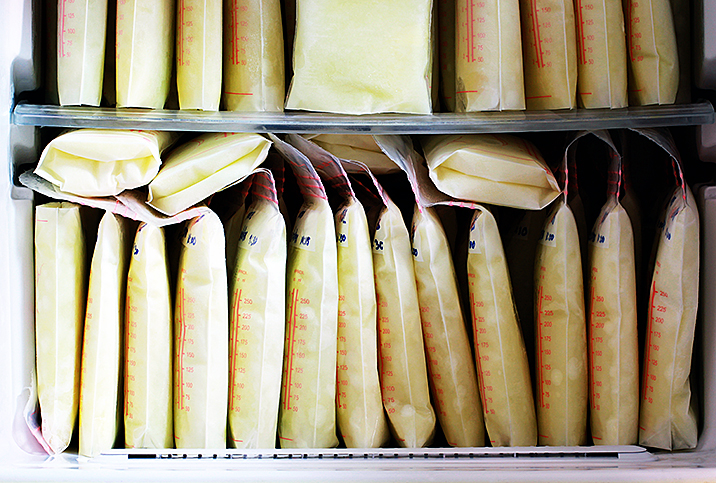
Kaitlin Ahern had always looked forward to breastfeeding her children and she didn't anticipate any obstacles. But after giving birth to her first child, she experienced a shortage of her own breast milk.
"My baby had some issues with latching and that caused my supply to tank right off the bat," said Ahern. "I never wanted to give her formula. My daughter was having trouble digesting it."
It was through a Facebook group called Eats on Feets that Ahern discovered she could enlist a donor who would provide her newborn with human breast milk.
At first, Ahern was skeptical.
"I was a little hesitant because I just didn't know how safe it was and, unfortunately, there's very limited resources out there about it," she said. "I looked into milk banks, and from what I could find, there weren't many and the ones that were near us made it very clear that the donor milk was for babies born prematurely."
10 percent of human donor breast milk samples obtained online were contaminated with cow's milk, and other samples contained caffeine and tobacco.
Ahern eventually turned back to the Facebook group and posted about her dilemma.
"A mom not too far from me replied, saying she had some extra milk in her freezer she had pumped," Ahern said in an interview. "We found a place to meet up and she gave me what she had."
Eventually, Ahern was able to get her own level of breast milk back up and she breastfed her baby for a year.
"I pumped during that time, and I had some extra breast milk that I put in the freezer. My sister had had a baby about six months after me, and she was premature, so I donated it to my sister," she said.
Ahern is not alone. A study of 655 parents who have used donated breast milk, published in the journal Pediatrics, found that 64 percent have turned to informal milk-sharing opportunities. Only 36 percent secured donor milk from an official milk bank that pasteurized individual contributions.
A Nationwide Children's Hospital study found 10 percent of human donor breast milk samples obtained online were contaminated with cow's milk, and other samples contained caffeine and tobacco.
"Online, informally shared milk or informally sold milk—because we see both of those scenarios—doesn't have a screening or testing component, including testing for bacteria," said Amy Vickers, executive director of Mothers' Milk Bank of North Texas. "We make sure that milk is pasteurized and has every single bit of bacteria in it destroyed. With donor milk dispensed through informal sharing, you just don't know."
As a result, the tradition of informal sharing is something milk bank experts discourage.
"We exist because we want to make donor breast milk safe for moms," said Angelica Rojas, community outreach and marketing manager with Mothers' Milk Bank in San Jose, California. "We don't encourage sharing in order to prevent diseases. So, when a mom calls about sharing, we have her turn to safe donor human milk."
The milk provided through Mothers' Milk Bank in California is not only pasteurized but also carefully vetted.
"The rigorous screening includes the donor doctor's approval, and just to ensure that the mom is healthy, we take a blood sample to test for HIV and other diseases, which tells us whether it's safe to give to another baby," Rojas said. "If the milk is informally shared, we don't know the history of the other mom who is giving their milk to that baby."
'We don't encourage sharing in order to prevent diseases. So, when a mom calls about sharing, we have her turn to safe donor human milk.'
Mothers' Milk Bank in California and Mothers' Milk Bank of North Texas are both currently low on supply. They are encouraging women to donate their breast milk to an official milk bank, rather than informally connect with mothers online.
"There really is a call to action for every mother with a child under the age of one, who is lactating and able to pump or manually express an extra half ounce or ounce per day and put it in the freezer, to contact a nonprofit milk bank nearest to them to be screened," Vickers said in an interview. "They can be a lifesaver right from their own home and it doesn't cost them anything. But it can save the lives of so many babies."
If the call to action is not answered, milk banks will be left with no choice but to be selective in who they help, according to Vickers.
"So far, we have not had to say no to anyone, so every baby with a medical need is receiving donor human milk. But because we're seeing a downward trend in milk donors, if the downward trend continues, it will not be more than a month from now before we will have to compromise who gets donor human milk," she said. "We don't want to be in that situation."







